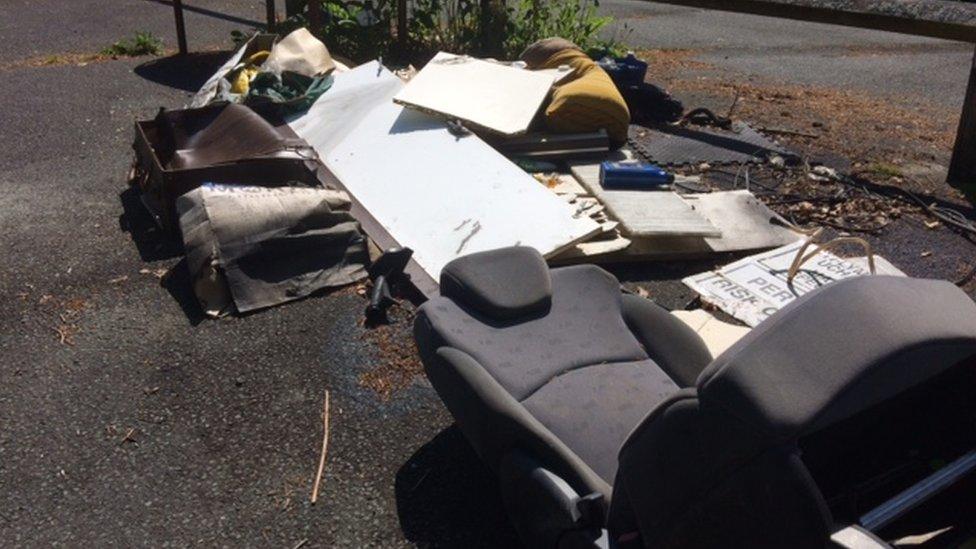Bridgend farmers win private prosecution over fly-tipping
- Published
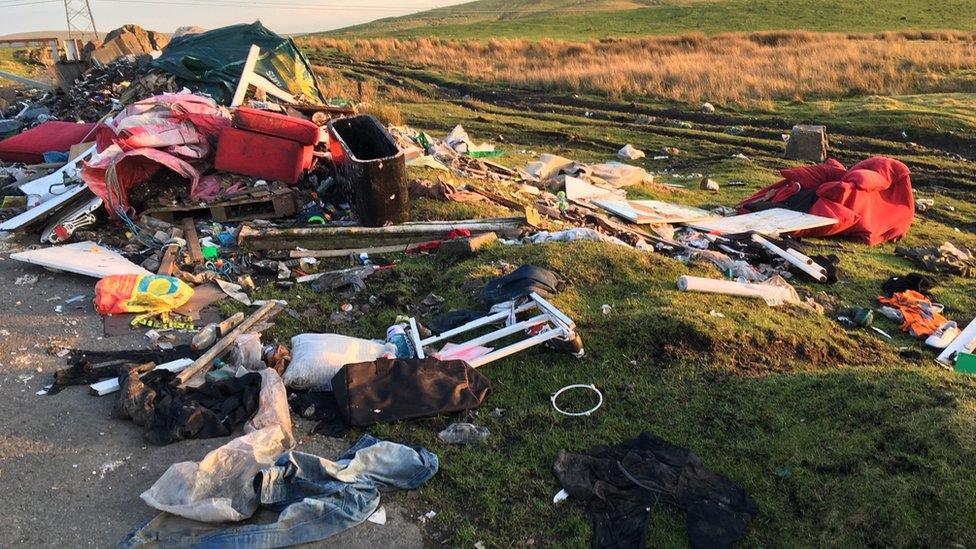
The farmers want others to follow suit and track down fly tippers who blight beauty spots with rubbish, like Gelligaer and Merthyr Common
After rubbish was dumped on land where their sheep graze, a group of farmers decided to take matters into their own hands.
Members of the Coity Wallia Commoners' Association had faced having to clear up the mess on land in Bridgend.
But the group employed lawyers who looked through the rubbish and tracked down the fly-tipper, who then paid to clear it up.
It is thought to be the first private prosecution of its kind in Wales.
They are now urging others to take private legal action, to cover the cost of clean-ups and to punish and try to stop people from fly-tipping on common land.
The problem is particularly bad on Gelligaer and Merthyr Common, which has been a hotspot for people to dump their fridges, freezers, sofas, and black bin bags for years.
Fly-tipping at Merthyr Tydfil beauty spot sparks anger
Fly-tipping is a criminal offence and local authorities and Natural Resources Wales have powers to investigate incidents and to prosecute those who are found to have broken the law.
Official government statistics show the total number of reported fly-tipping offences in Wales fell to 35,076 in 2018-19, the lowest recorded figure since 2014-15.
Meanwhile, the number of council prosecutions for the offence hit an all-time high in 2018-19 , with councils pursuing 139 cases.
But while councils are responsible for clearing fly-tipping from public land, they do not have to clear waste from private land.
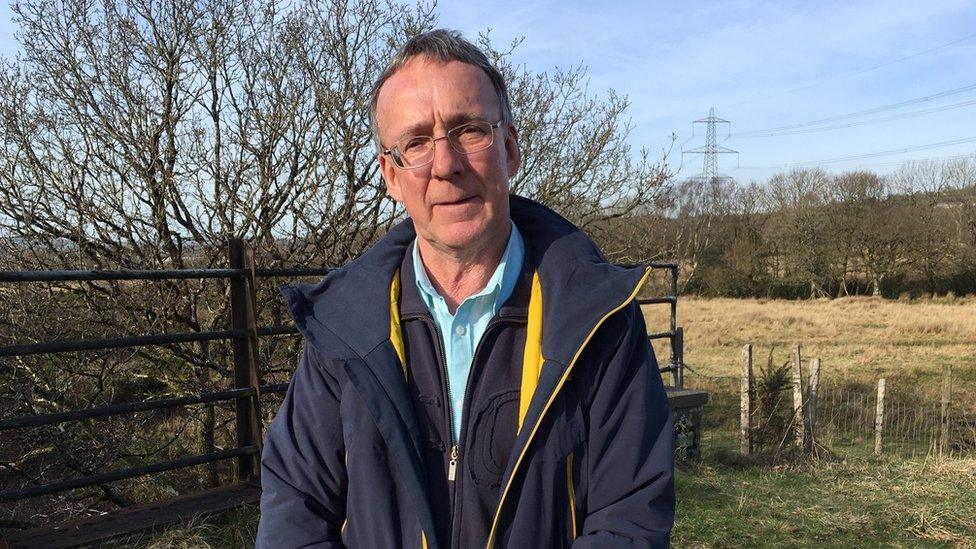
Huw Griffiths urged others to pursue private prosecutions to identify and challenge fly-tippers
As the Coity association own and manage the common land, they faced having to clean up the waste themselves and so took private action.
Secretary Huw Griffiths said: "We had no choice, and there comes a point where you have to draw a line in the sand and stand up for what you believe in.
"We were told we stood a good chance of getting costs back if it went to court and so on that basis we were happy to take a chance and it turned out really well for us.
"In fact the threat turned out to be enough and he paid before it went to court."
The offender was identified through the waste they dumped and they paid the £600 clear-up and legal costs.
About 170 people have grazing rights on the common that covers 2,000 acres.
It is public access land but the people who manage the land are entitled to keep sheep and other animals on the land under an ancient right.
Mr Griffiths added: "Waste can be dangerous to livestock and can include all sorts of plastics and glass and that's why we decided to take things further.
"The cost of taking a private prosecution can be prohibitive but we took the gamble."
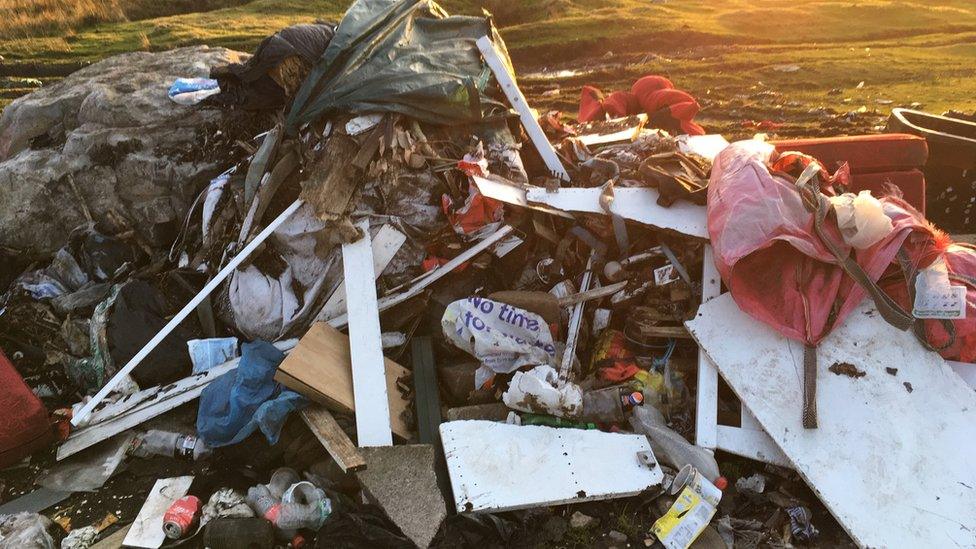
The ranger at Gelligaer and Merthyr Common said they were hoping to get ditches dug at the side of roads to stop people being able to dump on the common
Aled Owen, from legal firm Harrison Clark Rickerbys, said it was the first time a commoners' association had pursued a private prosecution for fly-tipping in Wales.
"The whole purpose of the strategy is to get money to pay the cost of the clear up and then money recouped to pay for the administration of it," he said.
"But it is also to make sure the message is out there so people know that if they carry out this action of fly-tipping they will not get away with it and they can be penalised for their actions in this way."
Bridgend council said local authorities were not allowed to use public money to clear fly-tipping from privately run land, but the authority would provide as much support as possible to help identify offenders and ensure that further action can be taken.
- Published27 January 2020
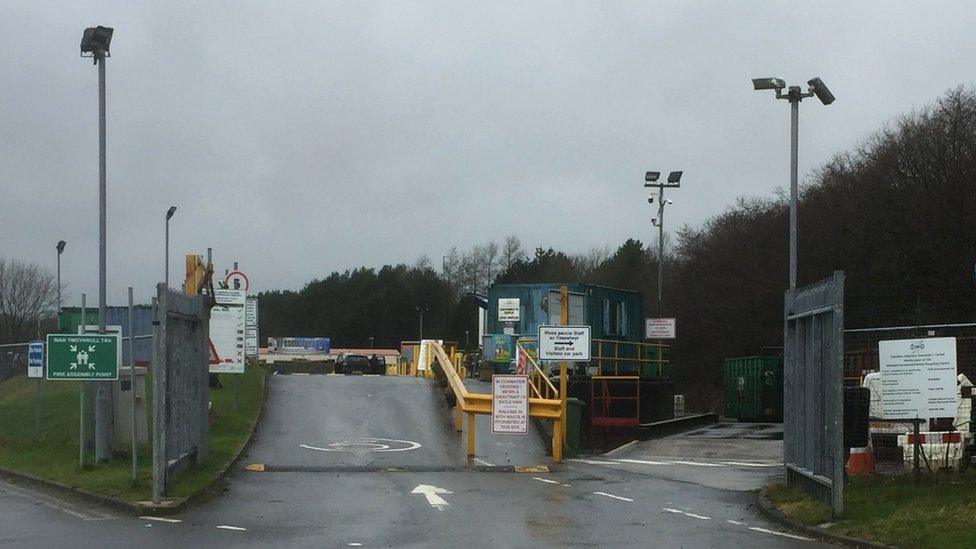
- Published9 January 2020
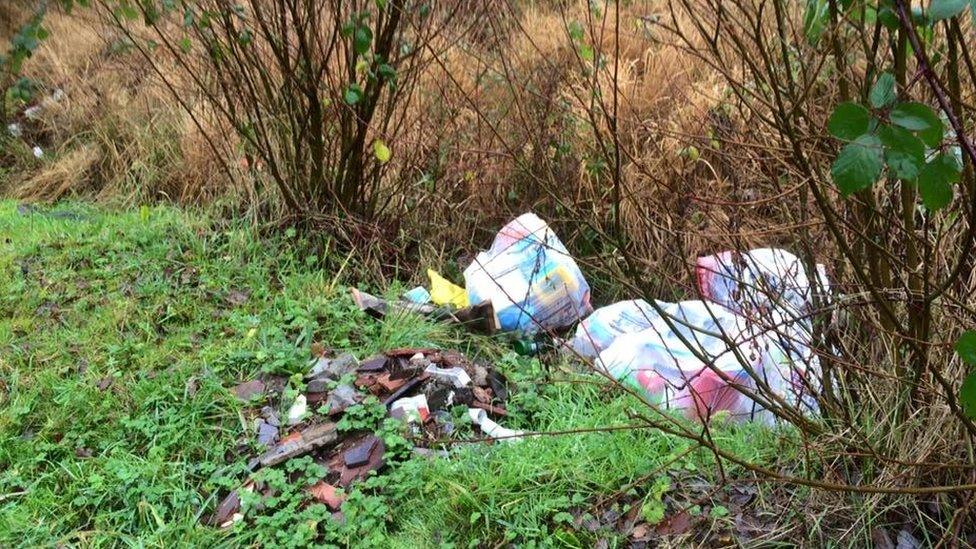
- Published27 December 2019
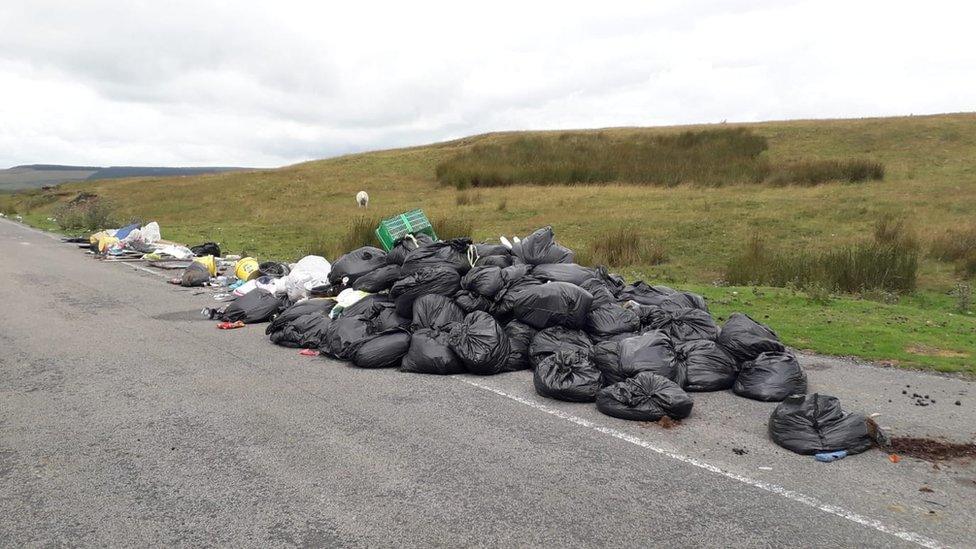
- Published8 August 2019

- Published16 May 2019
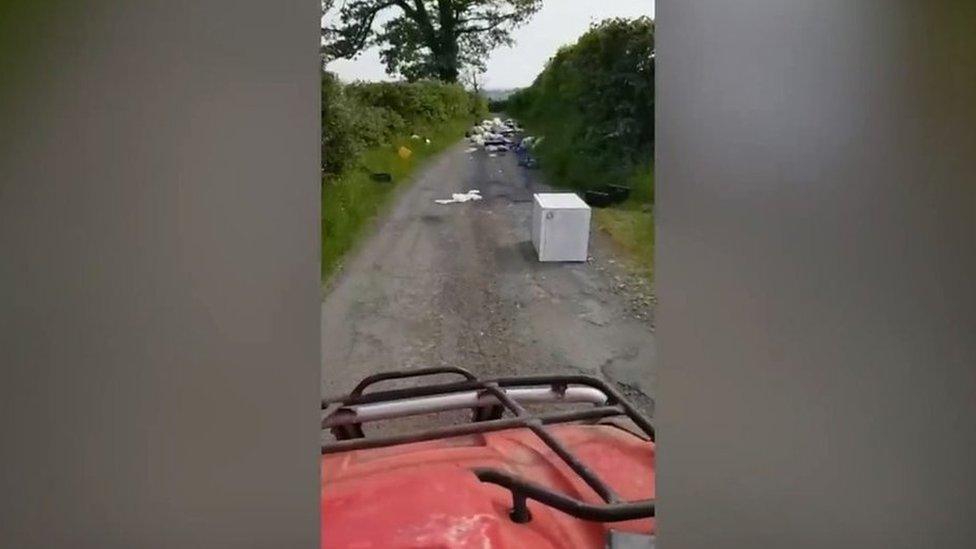
- Published19 February 2019
